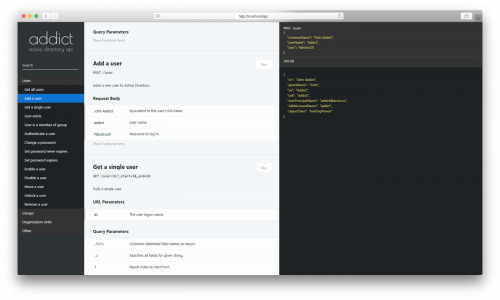I don’t usually like infographics, but this one nails it!
Category: Sysadmin
System administration is a special are of IT. It also has a special place in my heart. It is an interesting mixture of all the other disciplines, both common across the whole industry, and at the same time unique for each person, company, and geographical location. When I have something to say or share about system administration, I use this category.
Secure Headers – a PHP library for easier management of browser security features
Modern browsers offer a variety of security mechanisms for web developers. Unfortunately, some of these aren’t so easy to manage. One needs a deep understanding of the functionality as well as theory behind. Secure Headers is a library that makes all that work a lot easier for PHP developers. Here are some of the features:
- Add/remove and manage headers easily
- Build a Content Security Policy, or combine multiple together
- Content Security Policy analysis
- Easy integeration with arbitrary frameworks (take a look at the HttpAdapter)
- Protect incorrectly set cookies
- Strict mode
- Safe mode prevents accidental long-term self-DOS when using HSTS, or HPKP
- Receive warnings about missing, or misconfigured security headers
Addict – Active Directory REST API in 30 seconds
Addict is a drop-in REST API microservice for Active Directory implementations. Just like that.
I’m leaving it here for the next time that I’ll have to deal with the Active Directory. Or, hopefully, never.
Passwords Evolved: Authentication Guidance for the Modern Era
“Passwords Evolved: Authentication Guidance for the Modern Era” is a good collection of guidelines and concerns for password management in the modern day.
Here’s the bigger picture of what all this guidance from governments and tech companies alike is recognising: security is increasingly about a composition of controls which when combined, improve the overall security posture of a service. What you’ll see across this post is a collection of recommendations which all help contribute to a more robust solution by virtue of complimenting one and other. That may mean that individual recommendations such as dropping complexity requirements look odd, but when you consider the way humans tended to deal with that (they’d just choose bad passwords with a combination of character types) alongside guidance such as blocking previously breached passwords, things start to make a lot more sense.
Now there’s just one more thing: as good as all this guidance is, practically implementing it can be somewhat trickier.
How to defend your website with ZIP bombs
 “How to defend your website with ZIP bombs” has been making rounds on the Internet for the last few weeks. It’s both sad, that we have to resolve to such measures, and funny as to how tongue-in-cheek this approach is.
“How to defend your website with ZIP bombs” has been making rounds on the Internet for the last few weeks. It’s both sad, that we have to resolve to such measures, and funny as to how tongue-in-cheek this approach is.
Whether you are going to implement it for your web host or not, it’s well worth reading, for a better understanding of what’s going on online, in places, that you are probably not looking at.


